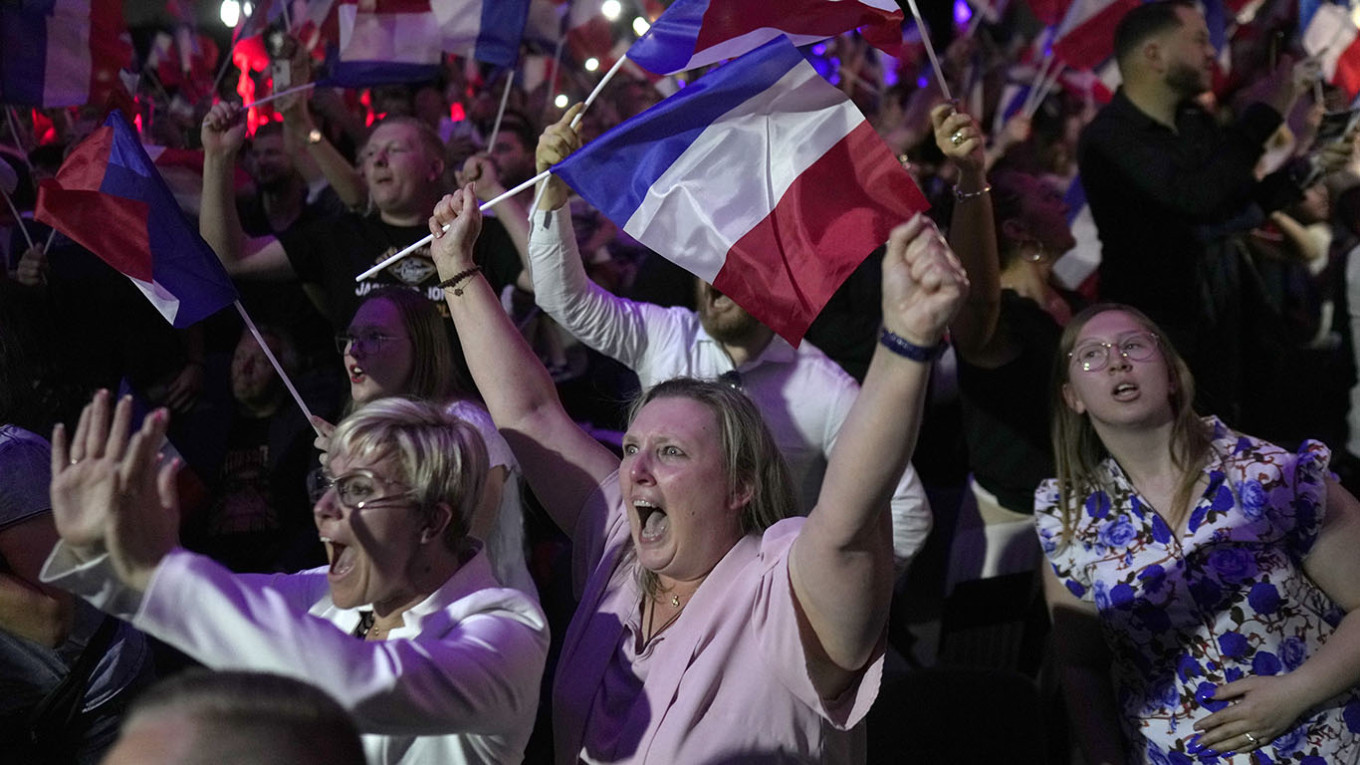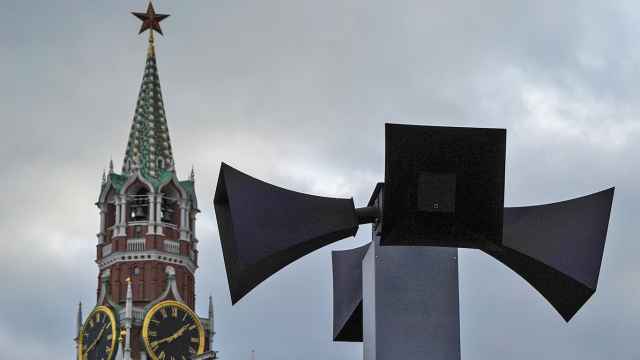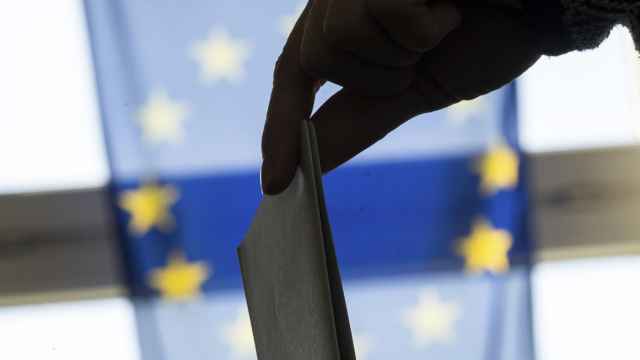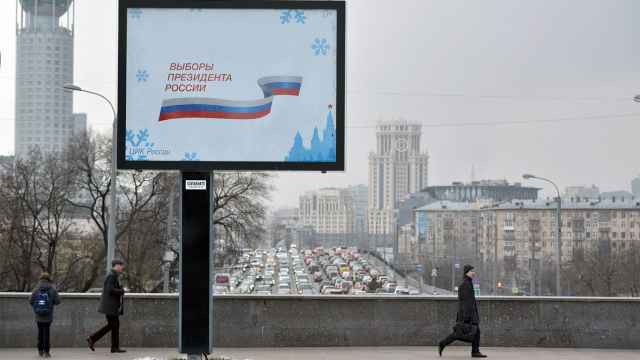The Kremlin is following the election results in France "very closely," a spokesman said Monday, after the first round of a snap vote where the far-right National Rally (RN) party won a resounding victory.
"The preferences of French voters are more or less clear to us," said spokesman Dmitry Peskov.
The far-right National Rally (RN) party of Marine Le Pen appeared to win a resounding victory in the first round of the polls, with Macron's centrists trailing in third behind a left-wing coalition.
But the key suspense ahead of the second round on July 7 was whether the RN would win an absolute majority in the new National Assembly, enabling it to form a government and make Le Pen's protege Jordan Bardella, 28, prime minister.
Russian officials said the results of the French elections would be judged alongside political developments elsewhere, including upcoming votes in the U.S. and U.K.
"Last week, we saw [Joe] Biden lose the debate [against Donald Trump]. And now Macron's party has lost, coming in third place in the legislative elections. The heads of state in power are suffering resounding defeats," said Vyacheslav Volodin, the speaker of the Russian Duma.
Other Russian officials and political analysts were skeptical that the developments signaled an imminent shift in relations between the Kremlin and the West.
"We should not expect an improvement in relations between Paris and Moscow after the legislative elections," said Vladimir Dzhabarov, vice president of the Foreign Affairs Commission, according to local media.
"We must not exaggerate the importance of the National Rally and its influence on French politics," also warned analyst Georgy Bovt on Russian radio BFM.
"The leaders of the RN have already made it known that French support for Ukraine would not be called into question," he recalled.
A Message from The Moscow Times:
Dear readers,
We are facing unprecedented challenges. Russia's Prosecutor General's Office has designated The Moscow Times as an "undesirable" organization, criminalizing our work and putting our staff at risk of prosecution. This follows our earlier unjust labeling as a "foreign agent."
These actions are direct attempts to silence independent journalism in Russia. The authorities claim our work "discredits the decisions of the Russian leadership." We see things differently: we strive to provide accurate, unbiased reporting on Russia.
We, the journalists of The Moscow Times, refuse to be silenced. But to continue our work, we need your help.
Your support, no matter how small, makes a world of difference. If you can, please support us monthly starting from just $2. It's quick to set up, and every contribution makes a significant impact.
By supporting The Moscow Times, you're defending open, independent journalism in the face of repression. Thank you for standing with us.
Remind me later.






